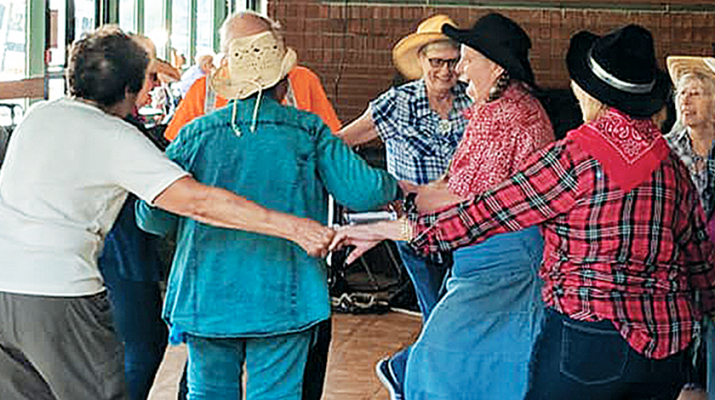To be happy in old age, you’ve got to get out of the house
By Barbara Pierce
Many of us feel alone.
More seniors face aging without a partner or family member to be there when we need someone, without anyone to support us through difficult times.
We all need social connections to thrive — no matter how old we are. Connections with others are critically important to our physical and mental well-being.
Many of us don’t have children, or our children don’t live near us. As we lose spouses, partners, and friends to death and disability, we aren’t able to replace them. The older we are, the less mobile we are, and the more difficult it is to establish new relationships.
“I’m alone with my dog and don’t know where to turn. I fear becoming homeless, and I’m scared to death,” said a member of Elder Orphan Facebook group online. Many of us have the same fears.
“The need for a social network is a big issue,” said Sara Spezzano, communications director at the Parkway Center in Utica.
There are serious health consequences to social isolation. Studies find that socially isolated older people are twice as likely to die prematurely, with a mortality rate comparable to smoking. Some studies show that loneliness is twice as dangerous as obesity. It can wreak havoc with your immune system and increase inflammation, leading to diabetes, heart disease, arthritis, speeds the onset of dementia and other serious health conditions.
“Ask a zookeeper to develop a space for Homosapiens, and he would list at the top ‘Obligatorily gregarious: Do not house in isolation,’” said Eric Klinebert in his book “Going Solo.” He’s right. Humans don’t do well being alone.
Experts recommend we connect with others in a social setting at least once a week. Even being around strangers is better than sitting home alone.
What to do if you or an older adult in your life is growing isolated?
You do have to force yourself to get out of your house, if you can. “People tell us they were sitting at home alone and unhappy, then came here and got involved and it saved their life,” Spezzano said about the Parkway Center. “That’s why we’re here.”
“We have a lot of things going on here that contribute to a long life and good health,” she added. “Like aerobics, ‘Stay Young Strong Bones,’ social activities, recreation, card games, Wii bowling, a social club, and trips. There’s something for everyone.”
To learn more about the Parkway Center, Spezzano invites people to just walk in or call first if they wish. “Our members are great at welcoming new people,” she said.
Helpful advice
— Get involved: Consider volunteering. “I feel like I’m doing something worthwhile, something that makes a difference,” said 87-year-old Frances Mannino of Utica.
After her husband died, Mannino began volunteering at Hospice and Palliative Care in New Hartford.
— Learn new things: Take an adult education class. Most libraries have book clubs and activities.
— Find a support group: Engage with a grief group or a group of people with similar concerns. You’ll get valuable information as well as an opportunity to meet others.
Whatever your interests, there are probably others with the same interests: historical societies, political groups, people who like to dance, hike, or garden.
Churches are a time-honored way to get people in your life. “I definitely believe that those who are part of a church have better health and longer lives,” said Father John Hogan of St. Mary of the Assumption Church, Oswego. “In our parish, the senior citizens’ interactions with one another are a source of support; their camaraderie makes all the difference in the world to them.”
“We’re all so out of touch with people, and in touch with our laptops, cells phones, and TV,” said Father Jim Cesta of St. Mary of Mount Carmel, Utica. “People are looking for a connection with others, a community. Being a part of a community promotes health and healing.”
If a traditional church or synagogue isn’t for you, consider Unitarian Universalists, Humanists, Buddhists or others out of the mainstream.
— Become internet and social media savvy: You’ll find groups to meet this goal, such as NY Connects for ideas. Connecting with others online is especially important if you can’t get out of the house. Facebook and others have discussion groups like Elder Orphan Facebook group that creates support, friendships, and connection for older persons living alone.
— Consider shared housing: Those living alone are prone to many health issues compared with those who live with another and are 70-to-80 percent more likely to develop dementia.
“I went way beyond my comfort zone when I invited Liz to share my house,” said my friend Julie. “I’d never lived with anyone but my husband. When he died, I was so lonely. Liz was looking for a place to live. It’s worked out well for both of us. It’s nice to have someone to have dinner with from time to time. It feels good that there’s someone who cares about how my day went. I’m really glad I pushed myself.”
The Parkway Center can be reached at 315-223-3973 or visit www.theparkwaycenter.org.

